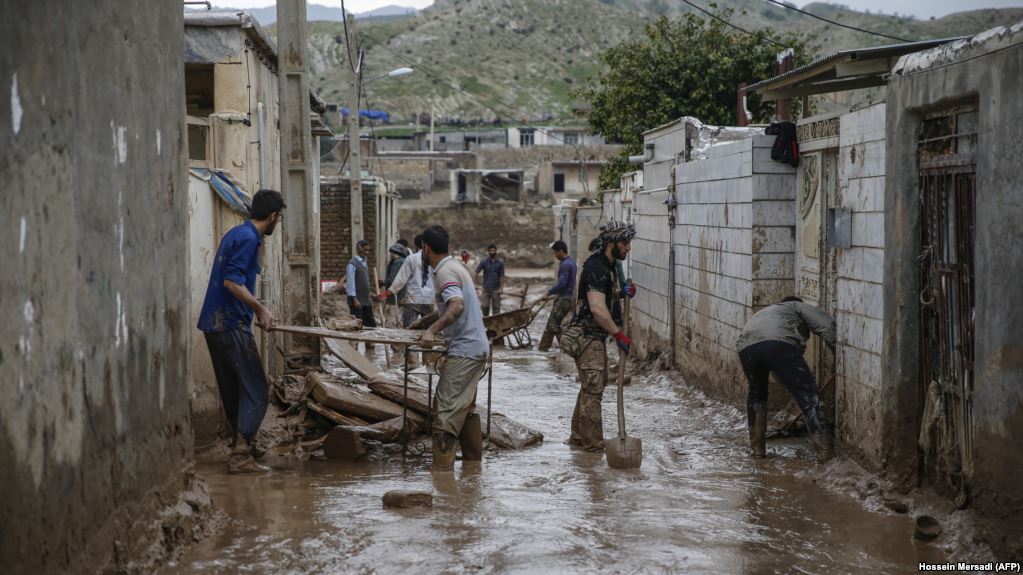Subscripe to be the first to know about our updates!

Iranians Protest Government’s Poor Response to Deadly Floods
Iranians affected by the county’s worst floods in a decade have been staging angry demonstrations against what they say is an inadequate relief response by the government.
With heavy rains drenching much of the country since March 19, floods have swept through hundreds of towns and villages in 26 of Iran’s 31 provinces, killing at least 62 people.
Thousands of people have sheltering for days in the open with little food or warm clothes as the rains have continued.
Protesters also have been venting anger at the government’s decision to release water from major dams that are near overflowing, saying the move threatens to destroy their homes, farmland, and livestock.
Videos on social media, which could not be independently verified, showed what were said to be protests in the mountainous Lorestan Province and the oil-producing Khuzestan Province.
Both of those provinces have been especially hard hit by floods that have forced evacuations of dozens of towns and villages and caused massive damage to homes and infrastructure.
One video uploaded to social media on April 4 showed an angry crowd surrounding the vehicle of Ahmad Khadem Sayyid al-Shohada, an Iranian army commander who is coordinating relief efforts along the Karun River in Khuzestan Province.
The anonymous uploader said that video was shot in the village of Sharmiyah.
Authorities in Khuzestan, where a state of emergency has been declared, have ordered evacuations from dozens of villages ahead of releasing water from a large dam in the region.
Shohada told Iran’s state-run IRNA news agency on April 3 that locals resisted, and that “emotional” farmers already hit by floods “showed their objections.”
Both the Islamic Revolutionary Guards Corps (IRGC) and the Iranian Army are taking part in relief efforts.
The protests come amid accusations by the IRGC that President Hassan Rohani’s administration has mismanaged the relief response.
Many Iranians see the relief effort as inadequate. Critics say the government’s efforts have been too small and the authorities are unable to cope with the immediate needs of the tens of thousands of people who have been affected.
One IRGC commander, Mohammad Pakpur, said on April 3 that there had been “no management” of the rescue or aid operations in neighboring Lorestan Province.
Sarem Razaee, the head of the nongovernmental Iranian Red Crescent Society, said the town of Pol-e Dokhtar in Lorestan was facing a “super-crisis.”
Pakpur said government officials do not “dare” go to the region because the “people are in a rebellious mood.”
Pakpur also said that citizens evacuated from the area “are in a sorry state and conditions are bad.”
Source; RFE/RL’s Radio Farda